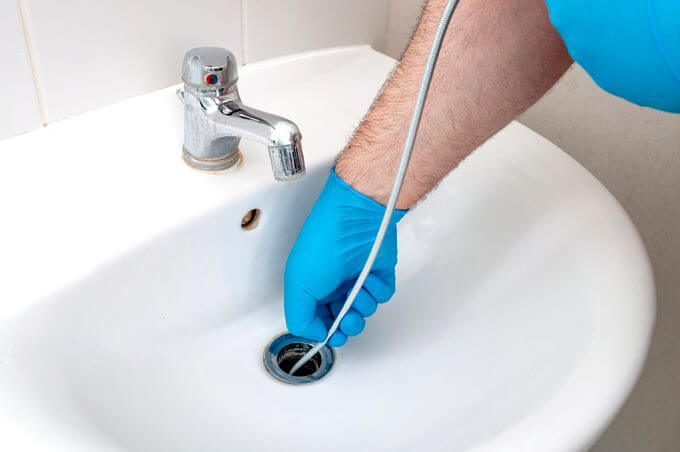If you deal with tough obstructions in your drains, you can use some drain cleaner products to tackle the issue. However, while the chemicals may take care of the problem, they may also damage your pipes.
The toxic fumes may also make you and your loved ones ill. It is possible to unclog your drains without using harsh chemical products that may do more harm than good.
Many alternatives are cheap, easy to use, and effective. Here, we will focus on how you can unclog your drain without using chemical products.
Dishwashing Soap With Hot Water
Grease can congeal very quickly. It can easily clog up your pipes in minutes as it hardens. If your sink drain has become clogged due to congealed fat, you can solve the issue with dishwashing soap and hot water.
Simply fill a pan to the halfway point with some water. Boil said water. You will need to drain any standing water that is in the sink. Next, squirt some dishwashing soap down your sink drain.
The dishwashing soap will need to sit in your drain for 2 to 3 minutes. Once the soap has hit the grease block, it is time to finish the fight. Take the boiling hot water from your pan and slowly pour the water into your sink drain to flush the grease down for good. As a safety precaution you should wear gloves when handling the pan.
Vinegar and Baking Soda
Baking soda, when mixed with vinegar, is another solution you can use to clear drain blockages. This potent combination will take care of most drain issues in minutes. It is all-natural, safe for your plumbing system, and cheap.
To warm your pipes, pour boiling water into your drain. The water should also help dislodge the clog. Next, refill the same pan with more water and add a cup of baking soda and a one-to-one cup of vinegar/water mix.
Pour the mixture down the drain and close it (if it’s a sink drain) for about 10 minutes. Once those 10 minutes have passed, you should flush the drain with more hot water and the blockage should be cleared.
Lime Juice With Baking Soda
If you can’t deal with the smell of vinegar, then lime juice will do the trick. This substitute may cost a tad more, but it definitely smells a lot better and can still effectively tackle blockages in your drains. Start by filling a cup halfway with baking soda. Fill the other half with lemon juice and pour down the drain.
Now cover your drain for about an hour. During this time, the lime juice and baking soda will be creating lots of foam, helping remove air pockets and pressure that could be holding the blockage together. All you need to do now is add lots of hot water and the problem is fixed.
Using a Drain Snake to Unclog Your Drain
Drain snakes are cheap, easy to use, and very effective at unclogging drains. Once you get the hang of using them, getting rid of drain clogs will be faster and easier than ever before. Begin by inserting the tip of the snake into your drain.
Next, twist and turn the knob at the base of the snake. By doing so, the tip of the drain snake will be thrust forcibly into the drain, breaking up and solid material it comes in contact with. Proceed to slowly move the snake deeper and deeper into the drain until you reach the obstacle. Do not rush this, as it could damage your pipes.
Next, spin and rotate the drain snake to cut through the blockage so that you don’t spend on a bathtub replacement. Once you have broken through the block, rotate and spin the device in the opposite direction and then pull the snake out to extract the materials that were causing the blockage.
To flush out the remaining debris or remnants, simply turn your tap on high. The hot water will break up and flush away any remaining residue from the clog in a few minutes. Some clogs, however, may be impossible to remove on your own, and if you don’t use the drain snake properly, you could damage your pipes and cause a bigger, more expensive problem that needs fixing.
If you want to avoid all this hassle, you can just hire a plumber to fix your clogged drain for you as well as any other plumbing issue you may have.
Bottoms Up
Most clogs result from a myriad of oils and fats being solidified in your pipes. Once they coagulate and harden, they can render your sink unusable.
If the issue is not too serious, simply pouring hot water down the drain should thaw or warm your pipes and dislodge whatever is causing the blockage. If you want to avoid blocked or sluggish drains in the future, then please be mindful of what you pour down your drains.
Getting proactive by placing a drain strainer, or a gunk and grime trap may help stop larger bits of matter from getting stuck in your drains. A grease trap may also help for your kitchen sink. Routine inspections and hot water cleansings should keep your drains in immaculate condition.

